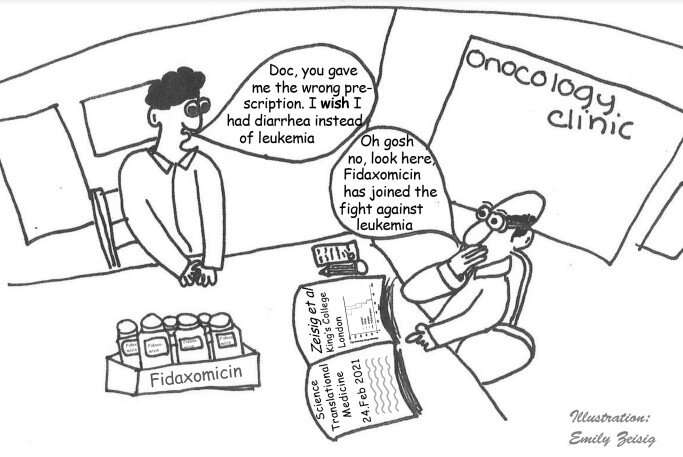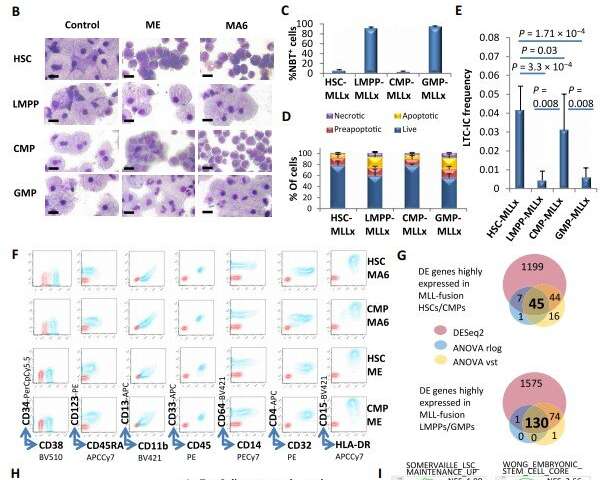
New research into one of the most common and difficult cancers to treat has revealed an effective route to mitigating chemotherapy resistance through the use of a drug already approved by the FDA to treat diarrhea. The findings are published in Science Translational Medicine.
Acute myeloid leukemia (AML) is one of the most common cancers in the U.S. The disease causes approximately 23,000 deaths per year, according to the American Cancer Society, and worse, often resists chemotherapy and other frontline cancer treatments. While most patients survive more than five years, treatment is often ongoing and financially prohibitive. In order to develop effective treatments, researchers in oncology and pharmaceutical targeting need to know why AML is so resistant to treatment, and identify a route to circumvent that resistance. Speaking to Medical Xpress, Dr. Chi Wai Eric So, Ph.D., Professor and Chair in Leukemia Biology at King’s College London and corresponding author of the study, explains the research: “DNA mutations are the drivers for cancer development,” he says. “However, these mutations have to take place in the right cells to become cancerous. Identifying the cells of origin are important to understand cancer biology and develop better therapeutic strategy. In this study, we have reconstructed and identified the cells of origin of a highly aggressive and treatment resistant form of human leukemia.”
“We discovered that these treatment-resistant leukemia cells expressed a special protein to pump out chemo-drugs,” Dr. So says. That finding allowed the team to target the cause of treatment resistance right from the source. “Using an antibiotic available in the clinic for diarrheal treatment to suppress the activity of this pump, we were able to re-sensitize the cells to chemotherapy, and significantly extend the survival of mice transplanted with human leukemia cells,” Dr. So explained in an email. “Let’s put it this way: knowing the car that the hijacker drives is important for the police to predict his next move and stop him getting to his safehouse. Identifying the cancer cells of origins is a fundamental and important step to understand their biology and finding a potential cure.”

This is promising news for AML patients and leukemia secialists alike. Dr. So is optimistic about the findings and their practical applications. “The discovery of an antibiotic with the ability to sensitize a highly aggressive and resistant form of leukemia to chemo-treatment will provide a new hope for those patients who otherwise have no treatment options. Also since this antibiotic is already in used for diarrheal, it will allow a relatively fast and easy reposition for leukemia treatment.”
Source: Read Full Article
